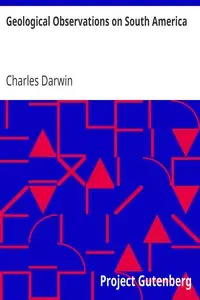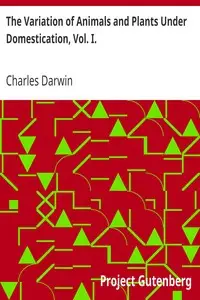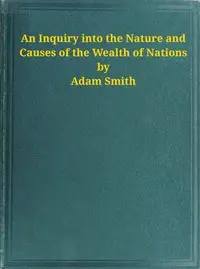"Journal of Researches into the Natural History and Geology of the Countries Visited During the Voyage Round the World of H.M.S. Beagle" by Charles Darwin is a captivating account of a young scientist's journey around the world aboard the HMS Beagle, as it showcases the rich observations and insights of his travels. Beginning with the ship's departure and arrival at Porto Praya, the journal meticulously records Darwin's encounters with exotic species, unique geological formations, and diverse ecosystems, capturing the wonder and excitement of scientific discovery. The author documents many of his observations on various forms of marine life, the island's geological makeup, the volcanic geology, and the island's sparse vegetation. Written with intellectual curiosity, Darwin's early explorations lay the groundwork for his revolutionary theories of natural selection and evolution, inviting readers to embark on a voyage of scientific exploration and witness the unfolding of groundbreaking ideas that would forever change our understanding of the natural world, all through the eyes of a naturalist.
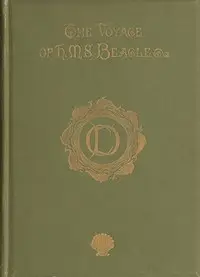
Journal of Researches into the Natural History and Geology of the Countries Visited During the Voyage Round the World of H.M.S. Beagle Under the Command of Captain Fitz Roy, R.N.
By Charles Darwin
Embark on a transformative voyage observing strange new life forms and geological wonders, joining a curious naturalist as he pieces together the mysteries of the natural world.
Summary
About the AuthorCharles Robert Darwin was an English naturalist, geologist, and biologist, widely known for his contributions to evolutionary biology. His proposition that all species of life have descended from a common ancestor is now generally accepted and considered a fundamental scientific concept. In a joint publication with Alfred Russel Wallace, he introduced his scientific theory that this branching pattern of evolution resulted from a process he called natural selection, in which the struggle for existence has a similar effect to the artificial selection involved in selective breeding. Darwin has been described as one of the most influential figures in human history and was honoured by burial in Westminster Abbey.
Charles Robert Darwin was an English naturalist, geologist, and biologist, widely known for his contributions to evolutionary biology. His proposition that all species of life have descended from a common ancestor is now generally accepted and considered a fundamental scientific concept. In a joint publication with Alfred Russel Wallace, he introduced his scientific theory that this branching pattern of evolution resulted from a process he called natural selection, in which the struggle for existence has a similar effect to the artificial selection involved in selective breeding. Darwin has been described as one of the most influential figures in human history and was honoured by burial in Westminster Abbey.


![The zoology of the voyage of H.M.S. Beagle [vol. 2 of 5] : $b Mammalia by G. R. (George Robert) Waterhouse](https://cdn.a2-host.cloud/zukBAv5nl0bloqaLpMGgOWFRjqdaX4OAVNpYK78XfHc/rs:fill:215:325:0/g:ce/aHR0cHM6Ly9zcC1hc3NldHMuczMudXMtd2VzdC0wMDQuYmFja2JsYXplYjIuY29tL2Jvb2svNjk1NzcvVGhlX3pvb2xvZ3lfb2ZfdGhlX3ZveWFnZV9vZl9ITVNfQmVhZ2xlX3ZvbF8yX29mXzVfYl9NYW1tYWxpYV9jb3Zlci5qcGc.webp)

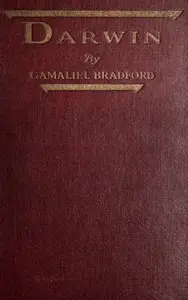
![The zoology of the voyage of H.M.S. Beagle [vol. 1 of 5] : $b Fossil mammalia by Richard Owen](https://cdn.a2-host.cloud/Bvp_36CMIVeu_ZaRRjUICc_2cWQ28-H9BCo_oa-AuV4/rs:fill:215:325:0/g:ce/aHR0cHM6Ly9zcC1hc3NldHMuczMudXMtd2VzdC0wMDQuYmFja2JsYXplYjIuY29tL2Jvb2svNjg5MjUvVGhlX3pvb2xvZ3lfb2ZfdGhlX3ZveWFnZV9vZl9ITVNfQmVhZ2xlX3ZvbF8xX29mXzVfYl9Gb3NzaWxfbWFtbWFsaWFfY292ZXIuanBn.webp)

